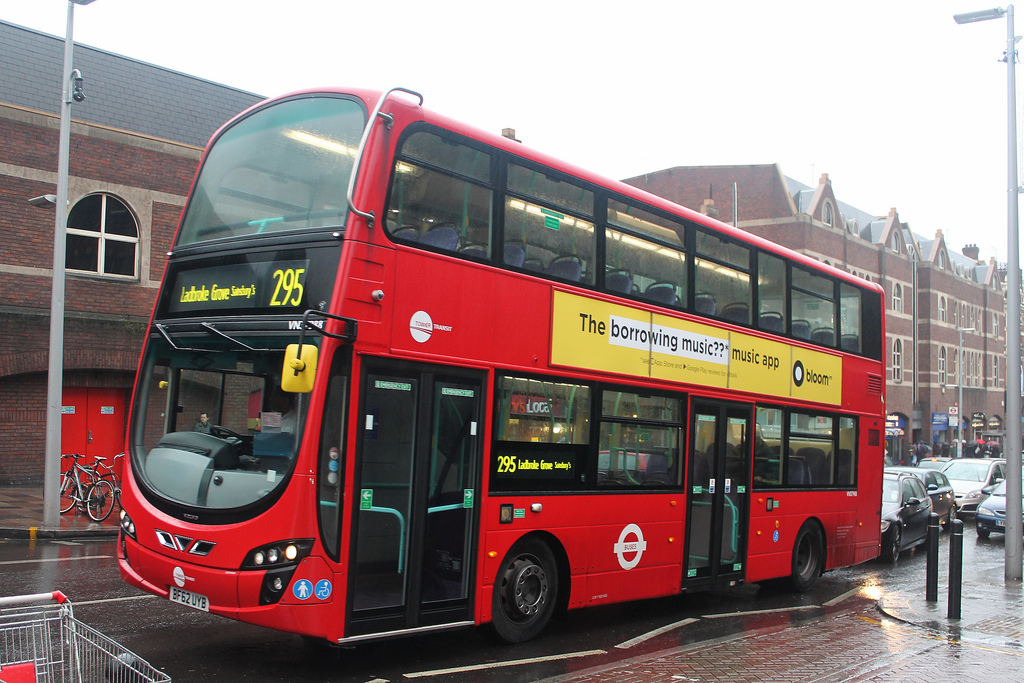Step aside SMRT and SBS, here comes a new challenger.
Last week, UK-based Tower Transit, a spinoff from Transit Systems, made waves both locally and abroad by becoming the first international transport company to operate bus routes in Singapore.
Tower clinched a five-year deal worth some $556 million to run bus services in Jurong, costing tax payers a whopping $100 million more than the lowest bid by SMRT.
It will operate out of the new Bulim depot and 26 bus services from the Jurong East, Bukit Batok and Clementi bus interchanges.
Good move or bad? Well, we are kinda torn.
The Good
After the announcement, Jurong residents be like:
1. Competition is always good.
In a capitalistic society, competition is very much welcome for all consumers.
Just look at how the three telcos try to outdo each other with cheaper mobile plans; remember how StarHub challenged the status quo in March 2000 with its free incoming call and per second billing? The entry of internet service provider MyRepublic has also resulted in better broadband packages.
While cheaper fares are out of the question, higher service levels are expected as the Land Transport Authority (LTA) said that all bus services will have scheduled headways of no more than 15 minutes in both directions during peak hours and feeder services will run at shorter intervals of six to eight minutes.
More frequent bus schedules? About time.
2. The two local transport operators can actually learn a thing or two...
If Tower Transit does well that is.
Moreover, Neil Smith, chairman of Tower Transit, told the media that Tower has spent eight years in Singapore learning about the public transport landscape.
And if indeed Tower passes muster, it's the perfect chance for the two local bus operators to pick up some of the best practices from their foreign counterpart.
This is because SMRT Corporation (SMRT) and SBS Transit (SBST) are not merely copying the best practices from overseas study missions but a foreign counterpart that has successfully adapted its best practices in Singapore.
Transport Government Parliamentary Committee chairman Cedric Foo already told Channel News Asia his wish that Tower Transit can innovate and improve the softer aspects of bus services.
Having operated over 650 bus services in various Australian cities, London and Cambridge, ferrying millions of commuters a year, Tower must have done something right.
3. There will be more jobs that aim to appeal to Singaporeans.
Tower is looking to recruit 900 people for its operations in Singapore. And to make it more appealing to locals (especially), the company is looking at flexible shifts, shorter work hours and eventual career progression in logistics and shipping for its bus captains - something unheard of among the local operators.
The Bad
Before you celebrate the arrival of competition, we play the devil's advocate.
1. Cultural differences/ (lack of) Understanding of tripartism in Singapore
For all the good things being said about Tower, it's perhaps surprising to know that there was a bus strike against the company just last year.
Unite, Britain's biggest union, reportedly described Tower Transit as "hell bent on driving down pay":
"Faced with an increasingly hostile management which is hell bent on driving down the pay, terms and conditions, our members have been left with little option but to take the unusual step of striking.
"Tower Transit need to get back around the negotiating table and start treating its workforce with respect."
[quip float="pqright"]The last thing Singaporeans (and the government) want is a bus strike. The last bus strike or "labour dispute" in Singapore was in 2012. This occurred after some 171 bus captains complained about wages and poor living conditions. [/quip]
With Singapore's brand of tripartism for Tower to adapt to, the company has its work cut out.
Executive Secretary of the National Transport Workers’ Union Ong Chin Ang sums it up nicely:
“On the other hand, the new foreign investors - we also expect them to understand the local situation, including labour relations, the way we practice tripartism. This requires both sides to make adjustments."
Tower Transit's first challenge?
It has to work with the existing union to offer new contracts to the bus captains who will be affected by the switch in operators from SMRT/SBS to Tower Transit.
It would not be easy for Tower Transit - the union told CNA that some workers had earlier asked if the free bus rides they had received in helping them get to work, would continue under the new employer.
2. Does the extra $100 million of tax payers' money guarantee quality?
It's interesting to note that Tower's bid was the third lowest bid, not the lowest.
Check out how Transit Systems' chief executive, Clint Feuerherdt poked his rival in Singapore: "The cheapest bid is not always the best".
This is because Tower's bid was some $100 million more than Tower's closest rival, SMRT. That's $20 million per year for five years.
LTA's chief Chew Men Leong gave a non answer saying that more emphasis was put on quality than bid price. Quality of what? The buses? The management? The track record? The government should be more transparent in explaining the award of tender especially when "quality" outweighs price in the evaluation. What does "quality" over costs really mean?
So with the extra $20 million per year paid to Tower, does it mean that there will be a concierge service waiting for you at the interchange offering directions? Or can commuters enjoy bus rides with massage seats? Or do the $20 million per year mean more profits generated for the CEOs overseas?
We wait with bated breath.
3. Xenophobia sentiments
There will be the usual xenophobic netizens asking if it is right for the Singaporean government to award a foreign company control of public services.
While most people will be hired locally in Singapore, Tower also plans to bring in some staff from London and Australia.
It's true, the flaming has begun.
Well, haters gonna hate. Potatoes gonna potate.
Tower has already made a first right step by deciding not to ply the trademark red London buses along Jurong - it told the media that "its buses in Singapore will have a different look".
Top photo from here.
If you like what you read, follow us on Facebook and Twitter to get the latest updates.
If you like what you read, follow us on Facebook, Instagram, Twitter and Telegram to get the latest updates.







